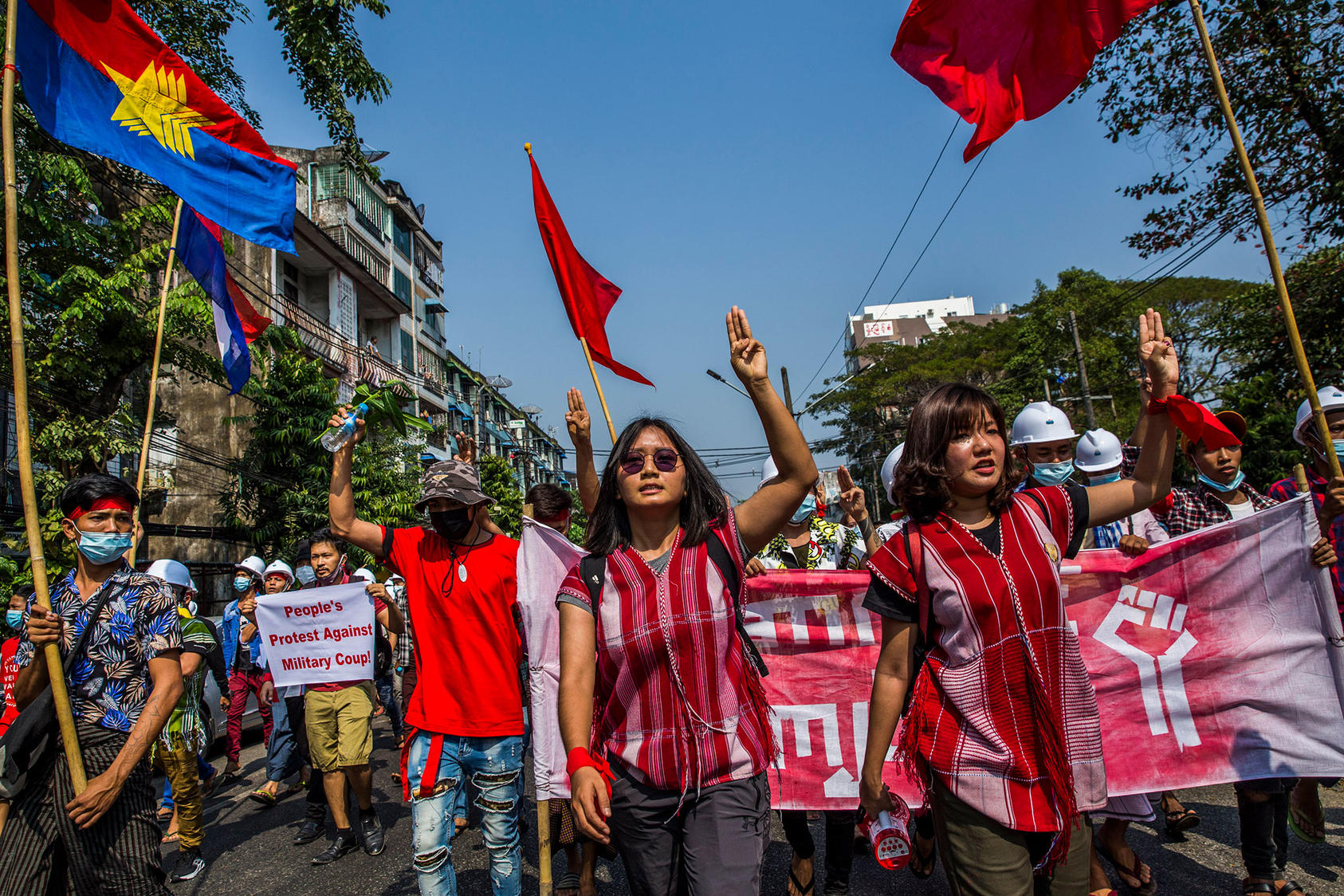Twitter Space Series: Protecting Women's Participation in Peacebuilding
Conversations with Leading Experts and Practitioners from Around the World
Despite mounting evidence that women’s inclusion leads to more durable political settlements, women’s voices remain systematically excluded from peace processes and decision-making while civic activists face increasingly brutal intimidation and violence. In 2020, the United Nations verified 35 killings of women human rights defenders, journalists and trade unionists in seven conflict-affected countries — a number that significantly underrepresents the violence facing women peacebuilders and civic activists worldwide. As global conflict and violence rise to unprecedented levels in 2022, the imperative for proactive women’s protection and inclusion has never been more urgent.

From February 25 to March 7, USIP hosted a series of Twitter Spaces between USIP experts and peacebuilding practitioners working in Afghanistan, Colombia, Myanmar, the Sahel and Ukraine to underscore the importance of protecting and facilitating women’s meaningful inclusion in peacebuilding. Panelists discussed strategies that create inclusive and safe participation channels for women of all backgrounds, beginning with a conversation on the global imperative to bring men and masculinities into this discussion.
Friday, February 25, 10:00am EST
Peaceful Masculinities
- Andrés Martinez Garcia
@andmartg
Program Manager, U.S. Institute of Peace - Gary Barker
@Promundo_US
CEO and Founder, Promundo - Kathleen Kuehnast
@kathkuehnast
Director, Gender Policy and Strategy, U.S. Institute of Peace
Tuesday, March 1, 2:00pm EST
Myanmar
- Billy Ford
@billee4d
Program Officer, Burma, U.S. Institute of Peace - Khin Lay
@KhinLay71
Founder and Director, Triangle Women’s Organization
Wednesday, March 2, 10:00am EST
Ukraine
- Asmik Arutyunyan
@AsmikArutunyan
Senior Program Specialist, Russia and Europe, U.S. Institute of Peace - Shelby Magid
@shelbyjmag
Associate Director, Eurasia Center, Atlantic Council - Oleksandra Matviychuk
@avalaina
Chair, Center for Civil Liberties in Ukraine
Thursday, March 3, 11:00am EST
The Sahel
- Nicoletta Barbera
@nsbarbera
Senior Program Officer, Africa, U.S. Institute of Peace - Emily Cole
@emilykcol
Program Officer, Governance, Justice and Security, U.S. Institute of Peace - Sandrine Nama
@CendrineNama
Burkina Faso Coordinator, Justice and Security Dialogues, U.S. Institute of Peace - Mari Traore
@MariTraore
Project Officer, Women Preventing Violent Extremism, Africa, U.S. Institute of Peace
Friday, March 4, 10:00am EST
Afghanistan
- Belquis Ahmadi
@belquisa2
Senior Program Officer, Afghanistan, U.S. Institute of Peace - Asma Ebadi
@EbadiAsma
Program Assistant, Afghanistan, U.S. Institute of Peace - Wahzma Frogh
@FroghWazhma
Co-Founder and Director, Women and Peace Studies Organization; Former Senior Advisor on Women in Security and Human Rights, Afghan Ministry of Defense
Monday, March 7, 10:00am EST
Colombia
- Maria Antonia Montes
@Tonis_Montes
Program Officer, Latin America, U.S. Institute of Peace - Angelika Rettberg
@Rettberg_A
Professor, Political Science, Universidad de los Andes



